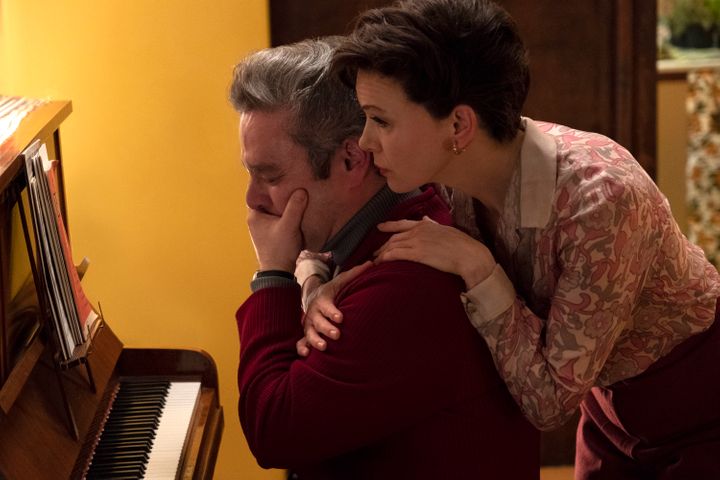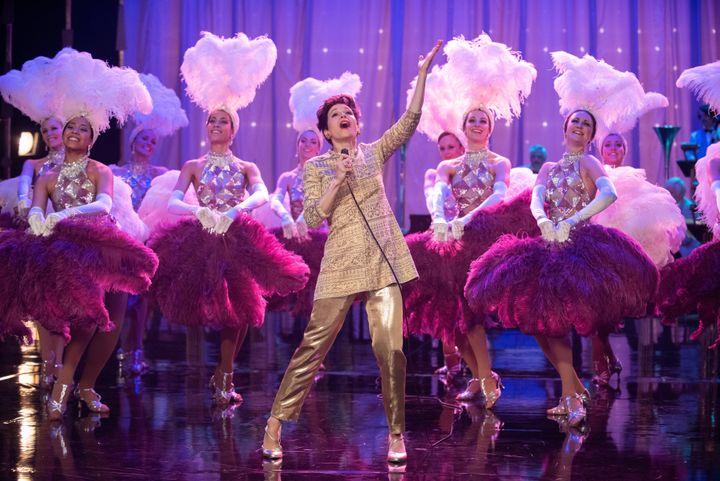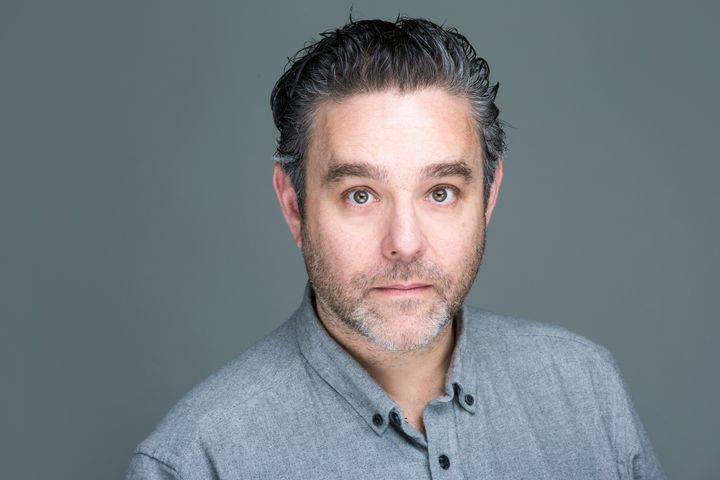[ad_1]
Portraying Judy Garland during the last year of her life, Renée Zellweger delivers a transformative, all-encompassing performance in “Judy,” the new biopic that seems poised to catapult her to Oscar glory once again.
Much of the buzz surrounding “Judy,” which hit theaters last month, has emphasized the film’s musical numbers. While Zellweger may lack much of Garland’s vocal prowess, she makes up for it in sheer moxie; her renditions of “The Trolley Song” and “Over the Rainbow” are riveting.
Of course, the film would be far less effective without its intimate moments too. One of the most poignant scenes depicts Garland meeting a gay couple, Dan and Stan (played by Andy Nyman and Daniel Cerqueira), who wait for their idol to exit the stage door after a concert. Through an unlikely series of events, Garland winds up at the couple’s apartment, where a night of revelry ends with an emotional discussion of how the two men find comfort in her music and films while maintaining their relationship amid legal and social persecution.
The scene, which appears about halfway through the film and has been singled out in numerous reviews, is very much an allegory. While Dan and Stan are fictional, they stand in for the legions of LGBTQ fans who embraced Garland during her career peaks — from “The Wizard of Oz” to “A Star is Born” and, later, live at Carnegie Hall — and stuck by the star as her private bouts of depression and drug addiction became more pronounced.
For many of those admirers, the connection was personal in more ways than one. Many historians believe “friend of Dorothy,” a code term used to explain that a man is gay that became popular in the mid-20th century, was inspired by Garland.

For Nyman, the scene’s aim was twofold: to relay the oppression members of the LGBTQ community had experienced in 1960s England to a modern audience, and to draw a connection between those challenges and the ones many encounter in today’s political climate.
“In the past five years, we’ve had dramatic changes in our ability to talk about things like world politics, gender politics,” he told HuffPost. “[Until recently] it felt like you could sit down and chat politics with people of opposing views. A conversation would ensue, and that would be the end of it.”
“You’re in a place now where you’re walking on eggshells and want to avoid those conversations,” he added. “It’s easy to presume everyone thinks the way you do, until you discover, ‘Holy shit, they voted for Brexit,’ or, ‘Oh, my God, does that mean they voted for Trump?’ I find that very parallels the world of suppression, illegality and fear that [LGBTQ people] were experiencing in England back then.”
“Judy” wisely steers clear of addressing Garland’s fabled, oft-contested connection to the 1969 Stonewall uprising — the symbolic start of the modern day LGBTQ rights movement — altogether.
The “Judy myth” nods to the fact that the riots took place in New York’s Greenwich Village neighborhood on the morning of June 28, 1969. less than 24 hours after Garland’s funeral service was held in the city. Some have suggested Garland’s death resonated so deeply among LGBTQ fans, it inspired those at Stonewall to stand up to a police raid.

Of course, both the 50th anniversary of Garland’s death and Stonewall this year serve as a reminder of the great social strides since the time depicted in the film.
Dan alludes to missing Garland’s 1964 performances at London’s Palladium because Stan was serving six months in jail for obscenity. The fact that the pair would be able to attend concerts together just four years later is accurate: The Sexual Offenses Act of 1967 decriminalized homosexual acts in the U.K.
As for his take on Garland’s enduring appeal to the LGBTQ community, Nyman said, “It’s no secret she was troubled and her journey was difficult. You hear it in the music — you’re not just getting something vanilla. There’s no filter.”
“There’s a level of vulnerability that speaks to people who feel like outsiders,” he added. “‘The Wizard of Oz,’ for instance, is a dreamlike fairy tale with a happy ending. At the heart of it is cruelty and lack of acceptance, but its message is ultimately, ‘Be who you are, the world will accept you.’ How can that fail to speak to the LGBTQ community?”

Nyman, whose credits include “Kick-Ass 2” and Disney’s forthcoming “Jungle Cruise,” also relished working with Zellweger, calling her “fucking amazing” both on-screen and off.
“It was remarkable to see Renée arrive, and bit by bit, there would be Judy,” he said. “She would transform herself physically — I felt like I was doing those scenes with Judy, and that made my job 1,000 times easier.”
“She’s utterly collaborative,” he continued. “No bullshit. Just wants to act and do it truthfully and well. It’s a phenomenal piece of work from a brilliant actress who is, at times, underrated. And that’s a really interesting parallel with Judy.”
REAL LIFE. REAL NEWS. REAL VOICES.
Help us tell more of the stories that matter from voices that too often remain unheard.
[ad_2]
Source link

